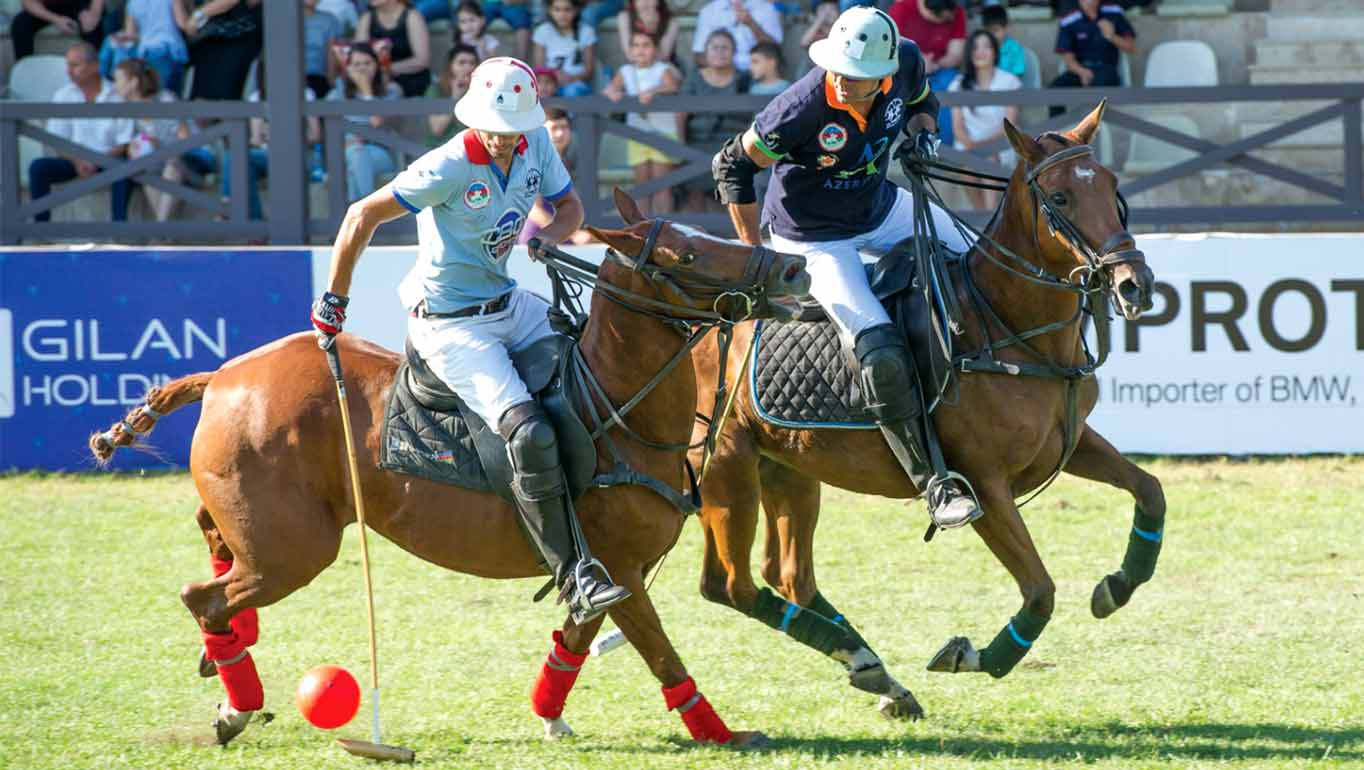While modern day polo is one of the most acclaimed and prestigious sports in the world, its origins inspire the relationship between horses and humans present to this day. We may associate polo with aristocracy and the British Empire, but the sport has been around for 2000 years, taking its Asian roots from the Caucasus region of Azerbaijan. Inscribed in 2013 in the UNESCO list of Cultural Heritage, it is one of the most nomadic and traditional sports to this day.
Chovqan is the name of the Azerbaijani game, considered to be the predecessor of modern polo. A typical chovqan game is played on a flat grassy field by two competing teams and players on Karabakh horses. These horses are distinguished for their beauty as well as their specific adaptation to the sport. The game starts at the center of the field and players use wooden mallets to try to drive a small leather or wooden ball into their opponents’ goal. People of all ages come to watch this traditional game and to support their teams. The traditional outfit of players was to wear large Astrakhan hats, long tight-fitting coats with a high waist, and trousers, socks and shoes. Nowadays, the traditional hats are replaced by helmets and the coats are switched to t-shirts. Traditionally, chovqan was enjoyed by skilled riders with different social status, and whether it be local farmers or members of the aristocracy of the Shah family, the game was aimed at bringing people of different social classes together. Moreover, it was also used as training for warriors to practice their coordination and balance on horseback.
As horses are a central part of everyday life in the mountains of Azerbaijan, they have always been a significant part of the culture. Horses were worshipped and respected, and this contributed to the creation of the chovqan sport. As this sport requires the Karabakh horses to be calm, tempered and agile, foals as old as one-year are trained for the riders. The horses are initially taught to walk slowly, and gradually develop into trotting, cantering and galloping. These horses are well fed and cared for in a manner that has been going on since the inception of the sport.
The word “Chovgan”, of Turkish origin, means “to hit with a stick”. According to historians, the sport was created in the middle of the first millennium AD, and was famous for several centuries in Azerbaijan, Iran, Turkey, and Central Asia. Sources indicate that the first international chovqan tournament among riders of Middle Eastern countries was held in the 12th century in Baghdad, one of the cultural centers of the Islamic world. Thanks to the Great Silk Road, Chovgan became famous in India and was brought to Europe in the 12th century. The British soldiers deployed in India learned to play chovqan there and then brought it back to England. In 1859, the British opened the Cachar Club in Assam – the oldest polo club still in existence to this day. At the initiative of the English, this sport was named ‘horse polo’ and included in the Second Olympic Games in Paris
in 1900. Polo would then gradually become one of the most recognized sports in the world, being one of the most popular sports in countries such as Argentina, who won the Olympic gold medal in Polo in 1924, and later becoming widespread all across the Americas.
In recent years, the urgent need to preserve the history of the chovqan game has been on the agenda, mainly due to the difficulty of breeding Karabakh horses. The fact of its inclusion in the Intangible Cultural Heritage List under the subheading “In Need of Urgent Safeguarding”, is meant to shield the sport from disappearing. With its distinguished history, chovqan has set the way for the modern day game of polo. Azerbaijan has tried to keep the traditional sport alive by encouraging the modern generations to play the customary chovqan game, while supporting the enthusiasm of the youth for regular polo as well as snow polo.
Snow polo has gained great cultural importance in the country, and it participates annually in the World Cup of Snow Polo on the frozen lake of St. Moritz in Switzerland, with Azerbaijan winning in 2023. It is challenging to keep heritage and customs relevant in modern society, but it is vital to keep these traditions alive. Staying true to traditions and retaining knowledge of them will protect them for the future. While the chovqan game is evolving in new ways, its legacy will only remain if its historical importance is remembered.



